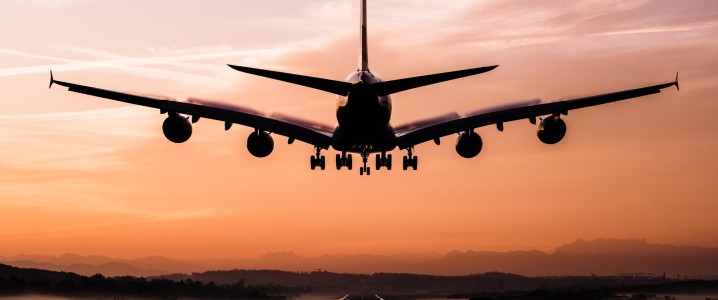Business
EU Mulls 10-Year Tax Exemption for Aviation and Shipping Fuels

The European Union is evaluating a proposal for a 10-year exemption from energy taxes on aviation and shipping fuels. According to a draft proposal obtained by Reuters, this initiative would delay the imposition of taxes until 2035, thereby extending the long-standing tax breaks that these sectors currently enjoy.
The draft, which is being prepared under Denmark’s rotating EU presidency, specifies that the only taxation before 2035 would apply to small aircraft with a capacity of up to 19 seats and private pleasure boats. Larger airlines and shipping companies would continue to be exempt during this transitional period. As negotiations are set to take place in Brussels on Friday, the EU presidency aims to reach an agreement by November.
Background on the Proposal
This initiative is part of a broader revision of the Energy Taxation Directive, which was first adopted in 2003 to establish minimum excise rates across the EU. The European Commission’s Green Deal proposal in 2021 sought to phase in fuel taxation across various transport sectors. However, persistent opposition from member states has stalled progress.
Industry groups have launched extensive lobbying efforts, arguing that without tax relief, the adoption of sustainable aviation fuel (SAF) will remain limited. Airlines have highlighted that the current costs of SAF are two to five times higher than conventional kerosene, making it economically challenging to transition to greener alternatives. Similarly, shipping operators have voiced concerns over the high production costs and supply bottlenecks associated with renewable marine fuels, as reported by Euractiv.
Economic Implications and Member State Reactions
The European Commission’s assessments indicate that eliminating these tax exemptions could not only generate billions in revenue but also serve as an incentive for the adoption of cleaner fuels. However, nations heavily reliant on tourism and maritime trade have expressed caution. They warn that increased transport costs could hinder economic growth in their regions.
Since EU tax policy requires unanimous approval, any single member state could potentially block the draft. Diplomats involved in the discussions have indicated that northern member states are generally more supportive of implementing taxation, while southern economies, which depend on tourism, remain strongly opposed.
The outcome of these negotiations could have significant implications for both the aviation and shipping industries as well as the EU’s broader environmental goals. As the meeting in Brussels approaches, stakeholders are keenly watching how these discussions unfold.
-

 Science2 months ago
Science2 months agoToyoake City Proposes Daily Two-Hour Smartphone Use Limit
-

 Health2 months ago
Health2 months agoB.C. Review Reveals Urgent Need for Rare-Disease Drug Reforms
-

 Top Stories2 months ago
Top Stories2 months agoPedestrian Fatally Injured in Esquimalt Collision on August 14
-

 Technology2 months ago
Technology2 months agoDark Adventure Game “Bye Sweet Carole” Set for October Release
-

 World2 months ago
World2 months agoJimmy Lai’s Defense Challenges Charges Under National Security Law
-

 Technology2 months ago
Technology2 months agoKonami Revives Iconic Metal Gear Solid Delta Ahead of Release
-

 Technology2 months ago
Technology2 months agoSnapmaker U1 Color 3D Printer Redefines Speed and Sustainability
-

 Technology2 months ago
Technology2 months agoAION Folding Knife: Redefining EDC Design with Premium Materials
-

 Technology2 months ago
Technology2 months agoSolve Today’s Wordle Challenge: Hints and Answer for August 19
-

 Business2 months ago
Business2 months agoGordon Murray Automotive Unveils S1 LM and Le Mans GTR at Monterey
-

 Lifestyle2 months ago
Lifestyle2 months agoVictoria’s Pop-Up Shop Shines Light on B.C.’s Wolf Cull
-

 Technology2 months ago
Technology2 months agoApple Expands Self-Service Repair Program to Canada









